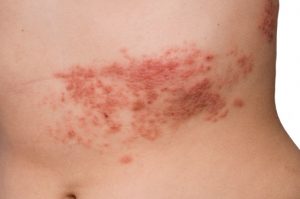 As a child, most of us had chicken pox: a highly contagious yet relatively benign viral condition that presents in the form of small, itchy blisters. It typically lasts about a week and is considered a mild infection in healthy children.
As a child, most of us had chicken pox: a highly contagious yet relatively benign viral condition that presents in the form of small, itchy blisters. It typically lasts about a week and is considered a mild infection in healthy children.
While complications due to chicken pox infection are possible, they generally occur in patients who are already at high risk. These individuals include those never vaccinated, those with impaired immune systems, pregnant women, and adults.
Virus more severe in adults
Advertisement
Adults are at high risk of developing severe complications if they contract chickenpox, which is caused by the varicella-zoster virus. They don’t even need to be newly infected with the virus—having had chicken pox as a child puts them at risk for the reactivation of the virus, which leads to shingles (also known as herpes zoster).
The Centers for Disease Control and Prevention (CDC) estimates that almost one in every three people in America will develop shingles in their lifetime. The risk also increases as we get older.
According to new research, published in the Journal of the American College of Cardiology, contracting shingles increases a person’s risk of stroke and heart attack.
Looking deeper into the risks
The study in question followed over 500,000 patients for 10 years (2003 to 2013). During this time, 23,233 cases of shingles were reported. A final cohort of 23,213 was matched with patients who did not have shingles, who were used as a control to compare results.
The researchers found that those affected by shingles were more likely to be women, be older, have high blood pressure, suffer from diabetes, and have high cholesterol. However, they also consumed less alcohol, were less likely to smoke, and were more likely to be part of a higher socioeconomic class.
Increased risk found
Advertisement
The results of the study demonstrated that having shingles increased the risk of stroke by 35 percent and the risk of heart attack by 59 percent. The risk of a composite of cardiovascular events, including heart attack and stroke, increased by 41 percent.
Both stroke and heart attack risks were highest within the first year of shingles development and decreased with time. These risks were found to be evenly distributed in the non-shingles participants.
“While these findings require further study into the mechanism that causes shingles patients to have an increased risk of heart attack and stroke, it is important that physicians treating these patients make them aware of their increased risk,” said Sung-Han Kim, one of the study authors.
